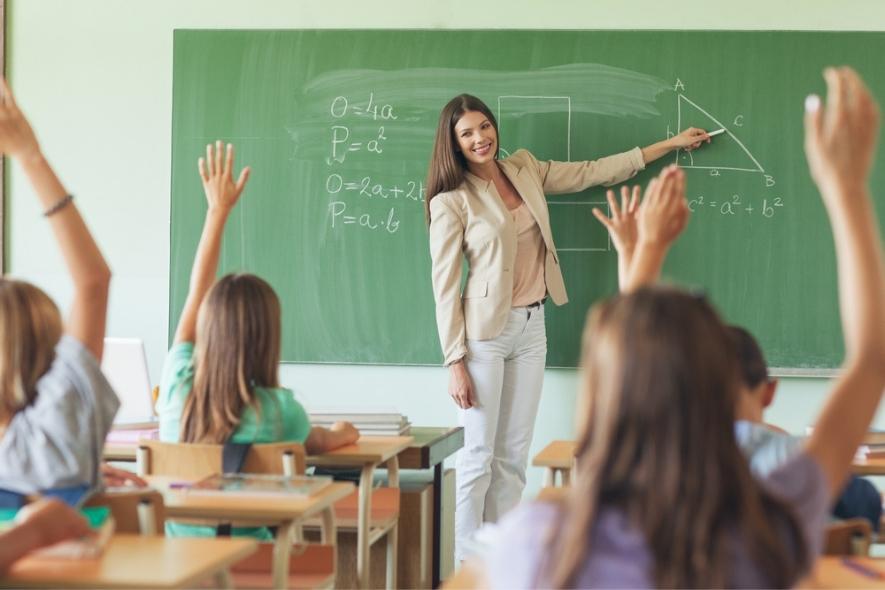Expert Tutors Offering Primary Science Tuition Singapore for All Grades
Expert Tutors Offering Primary Science Tuition Singapore for All Grades
Blog Article
Checking Out the Various Training Strategies in Key Scientific Research Education Today
Inquiry-based knowing, hands-on experiments, and the combination of technology are redefining exactly how educators involve young minds. Furthermore, collaborative methods and distinguished instruction are being utilized to provide to the diverse demands of pupils, enhancing both involvement and understanding.
Inquiry-Based Learning
Inquiry-Based Learning (IBL) is an instructional strategy that encourages trainees to check out clinical concepts through questioning, investigation, and hands-on trial and error. This method highlights the duty of trainees as energetic participants in their discovering, advertising vital thinking and problem-solving skills. By involving with real-world concerns, students become curious and determined, which improves their understanding of scientific principles.
In IBL, teachers work as facilitators, directing pupils as they navigate their questions instead of delivering information directly. This student-centered method enables for differentiation, fitting different learning styles and paces. Trainees create abilities in formulating theories, making experiments, and analyzing data, which are vital for scientific literacy.
Furthermore, IBL promotes partnership among students, encouraging them to share findings and ideas. This collective inquiry advertises social skills and a sense of community within the class. Additionally, the process of inquiry urges strength, as students learn to welcome failing as a stepping rock towards understanding.
Hands-On Experiments
Hands-on experiments are a crucial part of reliable science education, enhancing the principles of inquiry-based discovering. These experiments allow pupils to involve straight with scientific ideas, fostering a much deeper understanding via experiential learning. By adjusting materials and observing end results, young learners can grasp abstract concepts in tangible methods.
Such tasks advertise vital reasoning and analytical skills, as trainees assume outcomes, conduct experiments, and assess outcomes. This procedure encourages them to ask inquiries, refine their understanding, and create a scientific way of thinking. In addition, hands-on experiments can be tailored to varied discovering styles, making sure that all trainees have the possibility to engage meaningfully with the web content.
Additionally, hands-on experiments commonly encourage partnership amongst peers, advertising teamwork and interaction abilities. Operating in teams enables pupils to share concepts, review searchings for, and learn from each other, which improves their general instructional experience.
Including hands-on experiments right into the key scientific research educational program not only improves the discovering setting but additionally cultivates a long-lasting rate of interest in science. By actively taking part in their education and learning, pupils are more probable to develop a passion for clinical questions that extends past the class.

Technology Integration
Incorporating innovation right into main science education has come to be significantly important in cultivating student interaction and boosting discovering results. Using electronic tools, such as interactive simulations, virtual labs, and instructional software, provides students with opportunities to discover clinical ideas in ingenious methods. These resources facilitate a much deeper understanding of complicated subjects by allowing students to picture and control variables that would certainly be impractical in a traditional class setting.
In addition, modern technology assimilation encourages individualized discovering experiences. Students can progress at their very own speed, taking another look at challenging principles with multimedia sources, which provide to various knowing styles. This adaptability not just sustains individual development but additionally grows a sense of freedom in learners.
In addition, innovation works as a bridge to real-world scientific research, linking pupils with present study and expert contributions. Access to on the internet data sources and scientific journals broadens pupils' perspectives on clinical questions and promotes vital thinking skills.
Collaborative Discovering
Joint understanding plays an important function in key science education and learning by fostering team effort and interaction abilities amongst trainees. This strategy encourages learners to collaborate, share expertise, and take part in analytic, which boosts their understanding of scientific ideas. By taking part in team tasks, students discover to verbalize their ideas, listen to diverse viewpoints, and discuss remedies, every one of which are essential abilities in both academic and real-world contexts.

Research shows that joint knowing can bring about boosted motivation and interaction in scientific research subjects, as pupils discover satisfaction in shared experiences (primary science tuition Singapore). Furthermore, this approach prepares trainees for future joint endeavors, outfitting them with the skills needed for efficient teamwork in higher education and learning and specialist environments. Eventually, embracing collaborative learning in primary science education and learning can substantially enrich the knowing experience and advertise a much deeper understanding of scientific query
Set Apart Instruction

Differentiated instruction can manifest in various ways, such as varying the content, procedures, or items of learning. As an example, teachers might make use of tiered jobs that give differing degrees of intricacy, permitting trainees to work at their respective readiness levels. Additionally, flexible organizing methods can promote partnership among pupils with different abilities, fostering peer knowing.
Analysis plays a crucial duty in this technique, as it notifies guideline and aids educators recognize each trainee's special needs. Developmental evaluations, such as quizzes and monitorings, can direct educators in changing their approaches to boost discovering outcomes. primary science view it now tuition Singapore. Eventually, by executing differentiated direction in main science education and learning, teachers can cultivate a more fair and effective learning setting, empowering all trainees to reach their complete potential in comprehending clinical phenomena
Final Thought
In recap, the varied teaching techniques in key scientific research education and learning, including inquiry-based knowing, hands-on experiments, innovation assimilation, collaborative discovering, and differentiated direction, collectively add to an extra reliable knowing atmosphere. These techniques advertise essential reasoning, analytic skills, and a much deeper understanding of clinical principles. By implementing these approaches, instructors can develop engaging and encouraging class that attend to the different requirements of trainees, inevitably cultivating a long-lasting rate of interest in science and improving academic achievement.
Inquiry-Based Knowing (IBL) is a pedagogical approach that urges pupils to check out clinical ideas through wondering about, investigation, and hands-on testing.Collective view it knowing plays an important role in key scientific research education and learning by promoting teamwork and interaction skills amongst students.Study suggests that collective learning can lead to raised motivation and involvement in science topics, as trainees find satisfaction in shared experiences.In fostering a comprehensive discovering environment, set apart guideline emerges as a vital method to accommodate the varied requirements and abilities of important site pupils in primary scientific research education. Inevitably, by applying distinguished instruction in main scientific research education, educators can grow a more fair and reliable discovering environment, equipping all pupils to reach their full capacity in recognizing clinical sensations.
Report this page